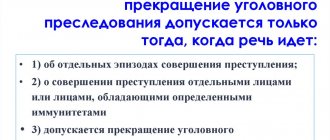What is the article of the Code of Criminal Procedure about?
Many people are interested in who can get acquainted with the materials of a criminal case, and when this can be done. It is the answer to this question that is regulated by Article 217 of the Code of Criminal Procedure of the Russian Federation. The rule of law reveals the procedure for familiarizing with procedural documents that are relevant to a specific investigation.
According to the established procedure, familiarization with the case materials is carried out on a general basis after a person has acquired the status of an accused. Of course, if a person is a victim, he is also allowed to study the documents, but not in full.
The legislator provides the accused in this situation with the opportunity to familiarize himself with the papers in full. This is not at all strange, because a person should know and understand what exactly he is accused of. Studying physical evidence, eyewitness testimony, inspection reports and other documents will allow a person, together with his lawyer, to clearly formulate a defense and try to refute the existing facts indicating the guilt of the subject.
In addition to the accused, the victim and their defenders, the prosecutor, civil plaintiff, civil defendant, as well as other participants in the process and persons who are not involved in the case, but the proceedings affect their interests, can become familiar with the protocols and reports of the investigator.
Basic provisions
Familiarization with the materials of the criminal case allows the accused to fully evaluate the evidence base, identify violations of the law committed by the investigator during the investigation, and also eliminate other errors that may affect the objectivity of the judicial proceedings.
There is no clear schedule for familiarizing yourself with the materials of a criminal case; a participant in the process, together with his defense attorney, can familiarize himself with the materials as many times as he wants, and for as long as he wants, within the framework of the work of the office or investigative body (during working hours).
The exception will be cases when the accused and his defense attorney deliberately delay the trial for a long time, abusing their rights. In such situations, the investigator can set a time frame for reviewing the documents. The accused can get acquainted with the papers together with his lawyer or, if there is an appropriate request, they can do this separately.
It will be interesting to know that familiarization with procedural papers is not a right, but even an obligation of the accused. If, at the invitation of the investigator, the accused and his defense attorney do not appear for the procedure, their actions may be considered as deliberately delaying the judicial proceedings. The investigator records the failure to appear at the event and files information about what happened with the total mass of documents.
In the protocol, the investigator indicates the reason for the failure to appear, as well as what exactly, in his opinion, was the evasion of the procedure. The protocol is sent to the court, and the judge sets a specific deadline during which the defense must familiarize itself with the papers. If they do not do this within the specified time, then the judicial proceedings will begin without familiarizing the accused subject with the procedural papers.
Unlike other participants in criminal proceedings, the accused and his defense attorney are not required to submit written requests to become familiar with the case. In most cases, the investigator himself invites the party to study the materials.
If the investigator does not do this, then a verbal statement will be enough for the accused and his defense attorney. All other parties to the procedure must write a written appeal, and sometimes present their personal and official documents.
Familiarization of the victim with the materials of the criminal case under the Code of Criminal Procedure of the Russian Federation, Article 216
Protocol of familiarization with the case
In the process of reviewing the case materials, the investigator draws up a document that records all the actions of the student studying the paper. According to general rules, the investigator must draw up a document from the beginning of the review until the completion of the procedure, but modern law enforcement officials violate the procedure by drawing up a protocol at the end. At the same time, they miss many points and twist the actions of the participants in the procedure.
The familiarization protocol looks like this:
- Document's name.
- Date of compilation, city and place.
- The main text of the paper, which contains information by whom, to whom, and on what basis the investigative materials were provided. Describe the time of review and the applications received during the study. They also indicate whether the participants in the production photographed, copied and made extracts from the submitted papers or not.
- The final part is based on the signing of the protocol by the accused who became familiar with the case, his defense attorney, and the investigator who provided the materials.
- At the end of the form, the procedural rules on the basis of which the protocol was drawn up must be indicated (Articles 166, 167 and 226.7 of the Code of Criminal Procedure of the Russian Federation).
An incorrectly drawn up familiarization document can lead to a lot of adverse consequences. For example, if during the review process one of the documents is damaged, and the investigator does not indicate this in the protocol, he will be responsible, because the official conducting the investigation is responsible for the integrity and safety of the materials.
P o st a n o v i l:
1. The preliminary investigation in criminal case No. 876543 should be resumed.
2. Notify the Ensk city prosecutor and the victim A.A. Petrov about the decision.
Investigator I.I. Ivanov
A copy of this resolution was sent to the Prosecutor of the city of Ensk, Counselor of Justice P.P. Sidorov. » 5 » September 2008
Notified in writing of the resumption of the preliminary investigation on September 5, 2008 ref. No. 1/3-1543 victim Petrov A.A.
Investigator I.I. Ivanov
Copy
NOTIFICATION
In accordance with Part 3 of Art. 211 of the Code of Criminal Procedure of the Russian Federation, I inform you that the proceedings in criminal case No. 876543, initiated on the fact of secret theft in the period from 20:00 on June 1 to 7:30 on June 2, 2008 at the address: Ensk, st. Sudovaya, house No. 30, building No. 2, the Toyota Avensis car that belongs to you, state registration plate T 062 SA 177 RUS, renewed on September 5, 2008.
Let me clarify that you have the right to appeal this decision to the head of the investigative body, the prosecutor or to the court.
Investigator Ivanov I.I.
Head of the UR KM Department of Internal Affairs for the city of Ensk
police colonel
S.I. Gromov
R A P O R T
I report to you that during the conduct of operational-search activities on September 5, 2008 in criminal case No. 876543, which is being processed by the Investigative Department at the Ensk Department of Internal Affairs, I, together with the UR KM Department of Internal Affairs in the city of Ensk police captain Bogrov S.A., monitored what was discovered at 11 o’clock. 15 minutes. a Toyota Avensis car without license plates, parked near the fence of the Vepr GSK (legal address: Ensk, Obezdnoe highway, property No. 3), the signs of which coincide with the signs of the wanted car.
At 6 p.m. 25 min. on the same day, the specified car was approached from the sidewalk located along the roadway along Obezdnoye Highway18, as established later, gr. Dmitry Konstantinovich Zhabin, born in 1973, opened the left front door, sat in the driver’s seat and closed the door. After 2 minutes, Zhabin got out of the car, contacted an unknown subscriber by mobile phone, the conversation lasted 3 minutes, after which he closed the car door and headed back towards the roadway. Then I and Bogrov made a decision to detain Zhabin. At the same time, Zhabin did not provide documents for the car.
After this, Zhabin was personally searched and explanations were taken from him.
I would like to submit this report, Zhabin’s explanations and the personal search protocol for inclusion in the criminal case materials.
O/u UR KM OVD
in Ensk
police captain A.D. Brother-in-law
Resumption of the preliminary investigation after 217
Comments on Article 217 of the Code of Criminal Procedure
In the legislation of the Russian Federation there are no legal grounds for refusing to provide case materials for review by participants in the proceedings. Any excuses about being busy or absent are considered unlawful. An official may be held accountable for such behavior. Of course, there is a certain procedure for familiarizing yourself with the materials of a criminal case, but it in no way violates the rights of the participants in the process.
You can get acquainted with the materials of a criminal case only at the investigative agency or in the court office under the supervision of the relevant civil servant. Taking documents home with you is strictly prohibited. Such rules are necessary in order to eliminate the possibility of substitution of protocols and destruction of important evidence and information.
During the review process, the legislator allows taking photographs of the case materials, writing out information, as well as making copies and taking them with you. This is very convenient, because if a person does not meet the established time for familiarization, he can continue the process at home.
If for some reason the defense attorney cannot be present with his ward at the review of the case materials, the accused may petition to postpone the procedural event until the defense attorney appears. The investigator postpones the procedure for no more than 5 days. If after this time the defense attorney does not appear, the accused will be offered to replace the defense attorney or familiarize himself with the case on his own.
There are cases when the accused at the initial stage refuses the participation of a defense lawyer, but after reading the materials he understands that he cannot do without additional help. In such a situation, he can apply for the involvement of a lawyer, and together with him continue to study the documents.
What does judicial practice show under this article?
The need to become familiar with the procedural papers can be considered using the trivial example of Article 111 of the Criminal Code of the Russian Federation. Citizen Petrov was brought to justice for beating his friend in a dark alley. On the eve of the event, Petrov, the victim and another acquaintance, Lavrov, were drinking alcohol. Lavrov and the accused Petrov quarreled. Lavrov left in a fit of anger and left the accused and the victim alone.
The men, having finished their alcohol, decided to continue the celebration and went to the store. According to the case file, on the way the men quarreled, and the accused beat his comrade half to death, after which he ran away. The materials also contain testimony from witness Lavrov, a third comrade who saw Petrov beating the victim. The accused claims that he did not do this, he allegedly went to the store and left his friend on the street, and when he returned, he was no longer there. Accordingly, he went home, deciding that the holiday was over.
The procedure for interrogating an accused in criminal proceedings and the time limits under the Code of Criminal Procedure, Article 173
In the process of studying the criminal case, the accused, together with his lawyer, identified an inconsistency in the testimony of a witness who initially indicated that he had gone home, but then turned out to be an eyewitness to the incident. The witness lives on the other side of the city, so he physically would not have had time to go home and then return to the scene and notice the fight.
The investigator was informed of the inaccuracies and the witness was interrogated again. During the interview, the investigator identified a lie on the part of Lavrov, who harbored a grudge against Petrov, and thus decided to take revenge on him. Since there was no other strong evidence against Petrov, and the victim did not see the attacker, criminal prosecution against him was stopped, and Lavrov was prosecuted for false denunciation and slander. Thus, a careful study of the case saved a person from punishment for an uncommitted crime.
What decisions can be made under Article 217 of the Code of Criminal Procedure?
Judicial practice in the matter of familiarization with case materials is quite monotonous. All the people who had read the indictment and the evidence base in advance understood the essence of the problem and at the court hearing did everything possible to avoid punishment.
At the same time, people who refused to familiarize themselves with the documents were unable to exercise their legal rights and defend themselves properly at the court hearing, which led to what they considered to be an unlawful verdict and many disputes and appeals.
None of the controlling authorities can deny the legal right of a party to the process to familiarize themselves with the materials of the criminal case. If such a situation exists, it is necessary to file a complaint with higher management.
It should be noted that the accused may refuse to familiarize himself with the case materials; this does not entail any penalties for him, and is not a reason for postponing the trial. The court hearing takes place as usual, just one of the procedural stages is omitted.
Current problems of familiarizing the accused with a criminal case
Familiarization with the case materials makes it possible to assess the comprehensiveness and objectivity of the investigation, as well as determine the completeness of investigative measures. For study by the parties, the materials are submitted ready-made, stitched and numbered. The lawyer, together with the ward, can make extracts from the documents, but taking into account the large volume of papers, this is difficult to do.
That is why the legislator allows copies to be made. In such a resolution lies the first problem. According to the established procedure, copies are made at the expense of the accused or his defense attorney; if there is no photocopier in the place where the case is being studied, or they cannot pay for it, it will not be possible to make a duplicate. Accordingly, the right of the accused is violated in advance when a room is provided for reviewing the papers.
Based on this, it should be noted that it is necessary to expand the possibilities associated with making copies to comply with the rights of the defense. If a lawyer was represented to the accused by the state, then the production of copies is carried out at the expense of the state budget, therefore the investigator himself must provide the desired copies of the documents.
The second, no less important problem is the concept of “delaying” the deadlines for familiarization. For some people, studying a 100-page case file takes several days, while for others it takes a month. Each person captures and processes information in their own way, so it is impossible to draw hasty conclusions about what is happening.
An investigator may perceive a scrupulous study of papers as a deliberate delay in judicial proceedings, and limit the rights of the accused, which in fact is prohibited by the Constitution itself. Due to the ambiguity in the interpretation of the concept of “delaying,” discussions have been ongoing for decades, but so far no solution has been found. The period of review is limited according to the personal opinion of the investigator.
Installation:
This criminal case was initiated on June 2, 2008 on the fact of secret theft by unidentified persons in the period from 20.00 on June 1 to 07.30 on June 2, 2008 from the territory of the roadway near house No. 30, building No. 2 on Sudovaya Street in the city of Ensk, owned by Petrov A .A. Toyota Avensis cars worth 290 thousand rubles, which is a large size, i.e. on the grounds of a crime provided for in paragraph “c” of Part 3 of Art. 158 of the Criminal Code of the Russian Federation.
On August 2, 2008, the preliminary investigation in the criminal case was suspended on the basis of clause 1, part 1, article 208 of the Code of Criminal Procedure of the Russian Federation due to the fact that the person to be charged as an accused has not been identified.
A written order was sent to the inquiry body in accordance with paragraph 4 of Part 2 of Art. 38 and clause 1, part 2, art. 209 of the Code of Criminal Procedure of the Russian Federation on the adoption of additional operational-search measures aimed at identifying persons involved in the crime under investigation and searching for a stolen car.
On September 5, 2008, the Investigation Department at the Department of Internal Affairs for the city of Ensk received a report from the head of the UR KM Department of Internal Affairs for the city of Ensk, police colonel S.I. Gromov. about the discovery by employees of the unit entrusted to him of a Toyota Avensis car without state registration numbers, the signs of which coincide with the signs of the wanted car.
Based on the above and guided by paragraphs. 1 and 2 parts 1 art. 211 Code of Criminal Procedure of the Russian Federation,






